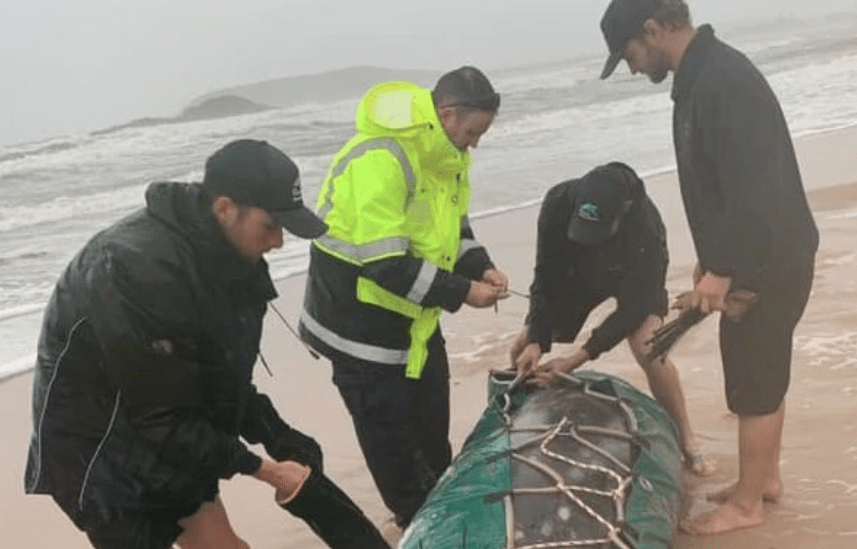Burying the heart: A traditional farewell to fallen whale

When a rare Blainville’s beaked whale washed up dead on a NSW beach this week its heart was buried at the site in an Indigenous ceremony.
The whale, which was found on Park Beach at Coffs Habour, on the Mid North Coast, is the seventh to be found on NSW beaches in a 12 month period.
The burial was part of the Sea Country Custodians program, a new initiative between the Aboriginal Land Council and the Dolphin Marine Rescue Animal Rehab Trust (DMRART).
Managed by the Department of Primary Industries, it’s a statewide program developed to ensure traditional owners of the land participate in animal rescues and offer cultural guidance.
According to Duan March of DMRART, the partnership is an important step forward.
“It’s something we should have been doing for years,” Duan says. “We make a lot of the clinical decisions that are quite emotional and tricky. Having traditional owners there means there’s a spiritual connection.”

Coffs Aboriginal Land Council CEO Nathan Brennan, who was involved in the burial, says the program is a really important step forward.
“The local Gumbaynggirr people have totem systems and some of them are attached to marine animals,” he says. “The totem for the Gumbaynggir people is the sea, so we have different totemic and kinship connections with different animals.
“It’s just about providing that cultural support, allowing Gumbaynggirr people to participate and continue those kinds of ceremonies.”
Smoking ceremonies are also held over some of the animals, a cleansing of sorts, and return to country.
While the traditional owners preference is for the entire animal to be buried at the site it is found, current legislation requires beach carcasses to be disposed of at licenced facility, such as a tip, which is where this body was moved to.
The heart was returned to Park Beach and buried on-site as part of the cultural ceremony.
Adult-sized Blainville’s beaked whales can measure more than 4m in length and weigh 1000kg.
Nate says Aboriginal Land Council rangers who assisted with the dead whale made the decision to cut the heart out and bury it.
“They wanted to at least be able to perform some sort of ceremony for that animal and we could do something that would allow us to fulfil our cultural responsibilities by burying part of that animal on-country.”

